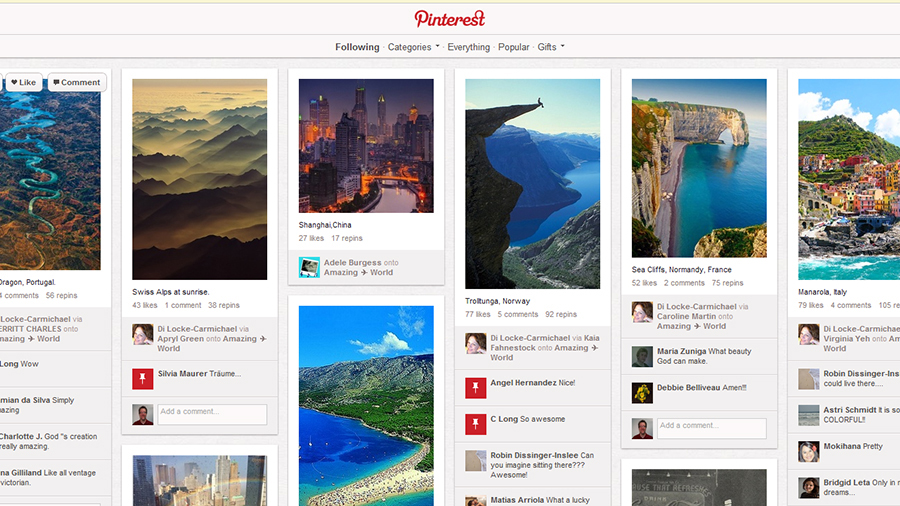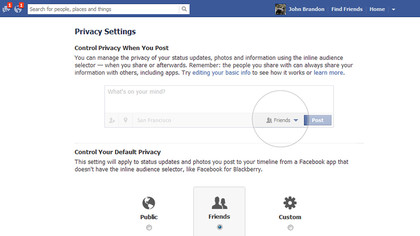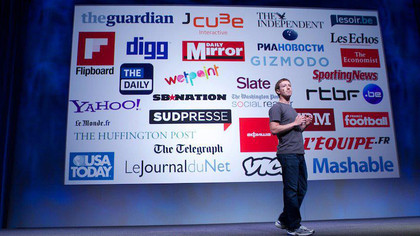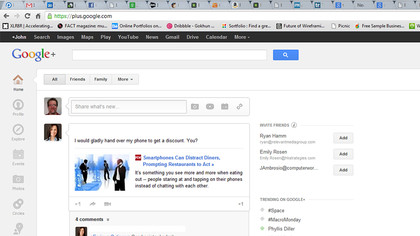10 tech trends that could kill Facebook
Emerging trends that could kill the social network

Sign up for breaking news, reviews, opinion, top tech deals, and more.
You are now subscribed
Your newsletter sign-up was successful
900 million users can't be wrong about anything, right? MySpace had 100 million users in its prime, but today has only about 25 million users, most of them bands that don't realise they should create a Tumblr page or start tweeting instead.
But Facebook has a death grip on our social sub-conscious and seems wholly unstoppable. It's hard it imagine going even one day without checking your feed for those new baby photos from Aunt Mary or commenting on some rabid political discourse.
Yet, as we have learned recently when Mexico bested Brazil for Olympic gold, even the mightiest among us can fall prey to a determined underdog. And what could kill Facebook? From a tiny startup capturing the mindhive to the smartphone in your pocket, several new trends could spell Facebook doom.
1. Mobile dominance
This one has Facebook worried, and for good reason. On the small screen, banner ads are almost microscopic, so advertisers are concerned about whether anyone will notice them. And even when we do, we tend to click away from the ads or choose services that are less commercialised.
2. Competitor growth
Those under 18 have started clicking away from Facebook for engaging competitors. This trend has more to do with attention span than anything. Sites such as Tumblr and Pinterest are growing because we have so little time to waste online – we want to scan quickly and find interesting content. And, sometimes a new site with a fresh design takes root and grows while the legacy sites fade.
3. Privacy concerns

Facebook does not have a stellar track record on privacy. For the most part, those 900 million users have given the service a free pass. But new identity theft challenges are cropping up. One new technique can scan for your credit card number online and start posting the number on Twitter. One day, millions of users might suddenly decide they don't trust Facebook any more, especially with those baby pictures.
4. Storage costs
Anyone who follows technology knows that storage costs are coming down. It's getting cheaper to produce mass storage systems. Even Dropbox has been handing out more storage to users for free lately (It added 8GB to our account for no apparent reason). Yet, as the user count rises, so does the need for more advertising to pay for that increase in capacity. We also know video will only increase in resolution, more users will post photos, and Big Data storage issues will only get worse.
Sign up for breaking news, reviews, opinion, top tech deals, and more.
5. Investor backlash
We now know Facebook is not worth quite as much as some thought. That could be problematic over the long run, as more investors start critiquing the business plans, condemning Facebook for privacy violations, and users switch en masse to mobile devices, pulling the plug on financing.
6. Mark Zuckerberg

He's widely considered a boy genius, but the hoodie-wearing CEO could follow the path of Jerry Yang from Yahoo! and countless other founders. In tech circles, a bright idea can lead to quick growth, but scaling a popular service into a large enterprise can take a different kind of vision, one that hinges more on financial accountability, management savviness and the ability to scale data for growth.
7. Lack of vision
We all know what Facebook is now. There's a steady stream of personal updates, photos, and the occasional video. No other service can quite match Facebook in terms of a popular forum for discussion, and it's one of the best ways to find long-forgotten family members and co-workers. Yet, whether Facebook survives depends on a long-term vision. Will the teens of today want to keep posting status updates when they are 25? Probably not. If the site does not morph with the masses, it could die.
8. Social splintering

Facebook is a one-size-fits-all social network. Meanwhile, Google Plus has become the place for more technically astute users. Yet we're already seeing a splintering into factions: Instagram is for those with more of a visual mindset, and sites such as Reddit.com are packed with users who have strong opinions. In the future, social networks might pop up that cater only to photographers or sports nuts.
9. Unexpected disasters
A massive earthquake takes out one of Facebook's data centers. A virus spreads through the network and works its havoc over several weeks, leaving no trace of its origin. A new "feature" leaks the data for every user to a foreign country. Who knows what catastrophe might befall a company with 900 million users? And, more importantly, who knows if Facebook is prepared to deal with the problem.
10. User revolt
One last possible Facebook killer is user revolt. After years of agreeing to look at ads that match up with our personal (but private) interests, sharing data that we'd normally keep more private, and serving as pawns in the grand scheme of things (Facebook earns money from each specific user), we might finally just call it quits. Users might close up accounts for good and move on to the next big thing.

John Brandon has covered gadgets and cars for the past 12 years having published over 12,000 articles and tested nearly 8,000 products. He's nothing if not prolific. Before starting his writing career, he led an Information Design practice at a large consumer electronics retailer in the US. His hobbies include deep sea exploration, complaining about the weather, and engineering a vast multiverse conspiracy.